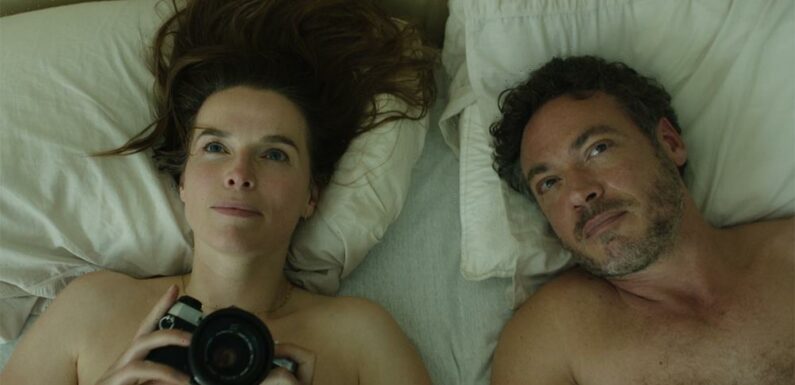
Sometimes a flurry of films focus on the same subject; it might be coincidence or maybe the filmmakers are tapping into the collective unconscious. Either way, a lot of Oscar contenders this year deal with daddy issues.
A key example is “Narcosis,” the Netherlands’ international-film submission. The movie, directed by Martijn de Jong and written by him and Laura van Dijk, centers on a man’s wife, son and daughter when he fails to return from a dangerous job. “It’s about love and life and how loss forces you to look at that in a brighter light,” de Jong tells Variety.
It’s a terrific film and a reminder that this year’s dad fixation is a global phenomenon.
Hugh Jackman depicts the complex relationship a man has with his father and his own offspring in “The Son,” while “The Whale” and “Aftersun” concern a strained father-daughter relationship. So does Lena Dunham’s “Catherine Called Birdy,” in which the central relationship is between Birdy and her papa (Bella Ramsey and Andrew Scott, both excellent).
Disney’s animated “Strange World” features Searcher Clade (voiced by Jake Gyllenhaal) and his relationship with his pop and his teenage son.
The title characters in “The Batman” and “The Northman” are driven to action by the murder of their respective dads. (As a bonus, Catwoman also is haunted by her relationship with her father.)
In “Armageddon Time,” Jeremy Strong seems like a supportive if ineffectual dad until he explodes, which indicates he’s harboring some scary demons.
Before “Blonde” debuted, director Andrew Dominik told ThePlaylist, “It’s a film for all the unloved children in the world.” Reaction at Venice Fest was rapturous, but since then, critics and the public have been been much more split. But whatever you think of the film, you can’t deny he has a lot to say about absent fathers.
The 2022 father fixation should not be surprising.
With movements like #MeToo, the phrase “toxic masculinity” has become common and there are frequent cries to “topple the patriarchy.” It raises questions: What is a man supposed to be anymore? What is the patriarchy and what’s a patriarch? In “She Said,” the reporters’ husbands are variations of June Cleaver, as they fix dinner and worry about their spouse overworking.
In addition to gender questions, we live in a time of constant fear and uncertainty. People long for reassurance, and a lot of folks want to metaphorically sit on dad’s lap and be rocked.
It’s not all paternal-centric. Mothers are key in “Cha Cha Real Smooth,” “Everything Everywhere All at Once,” “Tar,” “Till” and “Turning Red,” to name a few.
The “Narcosis” writers are a couple, with two children. While writing, he says, “We questioned if there is a specific role that fathers and mothers have in families, or in society. The family theme really is the core of the script,” adding that it was tough to explore the ideas of family loss.
And then there’s “The Fabelmans.” The absent father was a recurring figure in Steven Spielberg movies like “Close Encounters of the Third Kind,” “E.T. the Extra-Terrestrial,” “Hook,” etc. But around the time of “War of the Worlds” and “Munich” in 2005, the father became a take-charge, dependable guy. And “Fabelmans” gives equal time to both parents.
Fathers have always played a big role in U.S. films. Heroic dads include Atticus Finch in “To Kill a Mockingbird,” father-figure Juan (Mahershala Ali) in “Moonlight” and even Marlin (voiced by Albert Brooks) in “Finding Nemo.” The most negative is Darth Vader, whose line “No, I am your father” has traumatized several generations about paternal feelings.
This year, the film world’s most loving father is probably Gepetto in “Guillermo del Toro’s Pinocchio.”
Read More About:
Source: Read Full Article